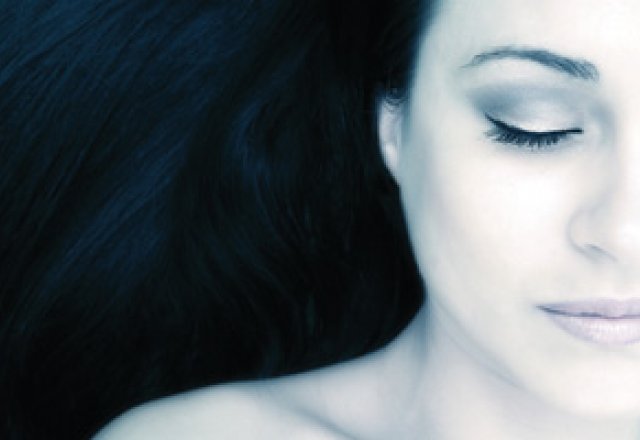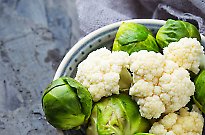
Natural ways to treat depression

Dealing with depression is becoming a fact of life in Western society
Whatever the causes, it is an illness affecting more and more people every year. And just like so many other illnesses, it can be treated.
There are many useful drugs available to treat depression, but what can you do to treat it naturally? Angus Livingston finds out.
Why am I feeling blue?
There is no singular cause of depression that doctors have identified. Instead, it appears to be a build-up of stress and trauma that brings a change in brain chemistry. Dale Deanshaw, head of Natural Medicine at the College of Natural Medicine in Queensland, says high levels of stress contribute to poor health, which in turn adds stress to the body and brain, sometimes leading to depression.
He says experiencing stressful events – such as the death of a loved one, end of a relationship, or financial trouble – could tip the scales into depression. However, at other times, small events and situations can just simply start adding up.
“It’s not just about running like hell from a tiger – it’s the constant wearing down,” he says.
Some people are more ‘prone’ to bouts of depression, while at other times, it can occur when the brain and body are lacking essential nutrients, rest or even creative expression.
Replacing essential vitamins and minerals
Depression can sometimes be caused or exacerbated by a vitamin or mineral deficiency, so it’s worth analysing your diet.
Dale says he looks at the body like a car. “It’s not just about petrol in the tank to make a car ‘go’. You need oil, electricity and water too,” he says.
“From a naturopathic view, the body needs to have the nutrients to function properly.”
Vitamin C and B deficiencies, in particular, are known to be linked with depression. Aspirin and contraceptive pills can deplete the body’s supplies of vitamin C, so make sure you replenish your system if you take these medications. Similarly, mineral deficiencies in magnesium, zinc, iron, calcium, manganese and potassium can lead to an array of symptoms including anxiety, fearfulness, exhaustion, tearfulness, weakness and mood swings. Recent research has also linked depression with a deficiency in vitamin D, the ‘sunshine’ vitamin.
While taking multivitamin and mineral supplements may be helpful in the short-term to help restore your levels, it’s worth looking at your diet to ensure you’re eating plenty of fresh fruit, vegetables and wholegrains, which are rich in nutrients.
Likewise, omega 3 fatty acids, found in fish, flaxseeds, pumpkin seeds and walnuts, are believed to help alleviate symptoms, so make sure you include these foods regularly in your diet.
St John’s wort
If you visit a naturopath to help you with depression, he or she might suggest taking the herb St John’s wort. Clinical trials have shown using St. John’s wort to combat depression had superior results to placebos, and it has been used around the world for centuries to treat a number of ailments. Also known as hypericum, the herb has proven to help treat mild to moderate depression. Scientists believe it affects the chemicals in the brain linked to depression and anxiety. The Black Dog Institute, which specialises in mood disorders, suggests taking 900mg of St John’s wort daily to effectively reduce symptoms of depression.
Herbal remedies, much like other antidepressant medications, may take up to four weeks to become effective. Check with your doctor before adding St John’s wort to your diet as it can decrease the effect of some other drugs, including the contraceptive pill.
SAM-e
A natural supplement called SAM-e is popping up in health food stores around Australia. Also used as a treatment for arthritis, SAM-e has shown tremendous results in some people. Best used in conjunction with B vitamins to ensure it is properly absorbed into the body, there is still a lot to learn about how the chemical works to help people. It increases dopamine, serotonin and norepinephrine action, which improves brain function. Used in Germany and Italy for 50 years, SAM-e has had a lot of success. It is expensive, however, and it is hard to know how much active ingredient is left in supplements by the time it reaches the consumer. Check with your doctor before taking SAM-e, especially if you are already on medication for depression.
Counselling
Talking is one of the best ways to deal with the issues that make us feel depressed. This is not as difficult as it once was – a number of high profile politicians, sports stars, actors and entertainers have opened up about their struggles with depression, so the stigma that may have been associated with it in the past has lifted somewhat.
Dale recommends anyone with depression find someone to talk to.
“Counselling should also be sought out, whether taking natural supplements and herbs or not,” he says. “Just talking to someone who is not a relative or friend can be very beneficial. Getting involved in a group like Beyond Blue is also recommended.”
Alternative therapies
Alternative therapies for mental health have been getting more attention lately, as people share their experiences of healing. One way to help treat depression is through the use of music or art.
Dale says alternative therapies have differing results, depending on the person. “They’re fantastic for some people, and mildly beneficial for some,” he says.
Dale says whether a person would benefit from music or art therapy is based on a number of factors, including their upbringing and preconceived ideas about artistic pursuits.
Exercise is also another therapy that has worked for some people, with the regular rush of endorphins sometimes helping bring balance to the mind. Regular exercise and sunshine have been recommended for some people as a good way of getting their body and brain back into balance.
Dale says just as distracting children is a good way to stop them from thinking about pain when they’ve hurt themselves, it can work with adults too.
“Distraction is definitely a great tool,” he says. “For adults, often getting them involved with something they enjoy or are/were fascinated by can help too.”
Prescription medication
For serious cases of depression, your doctor may recommend taking a course of prescription drugs. It is important to remember natural alternatives are for people struggling to manage their moods or looking for long-term solutions, not for the seriously depressive or suicidal.
Dale says there needed to be an understanding between naturopaths and doctors about how drugs interact with natural medicines.
“Thankfully most naturopaths today are willing to work with general practitioners rather than say ‘don’t take that drug, it’s poisoning your body and making you sick’,” he says. “Selection of appropriate nutrients and herbs must be done carefully.”
For information on depression and counselling, visit www.beyondblue.org.au or www.lifeline.org.au.
Don't forget to connect with us on Twitter and Facebook, too!


